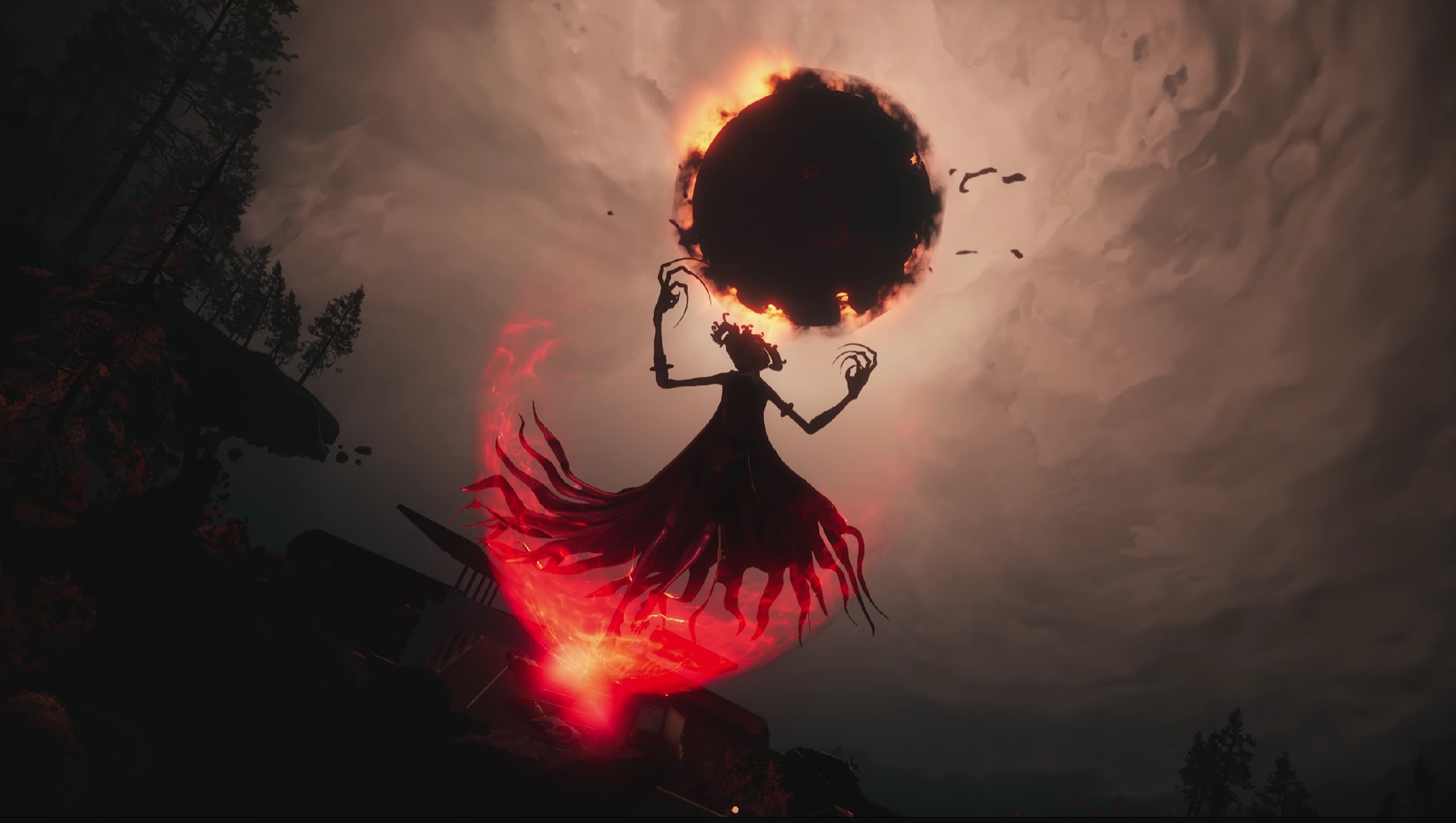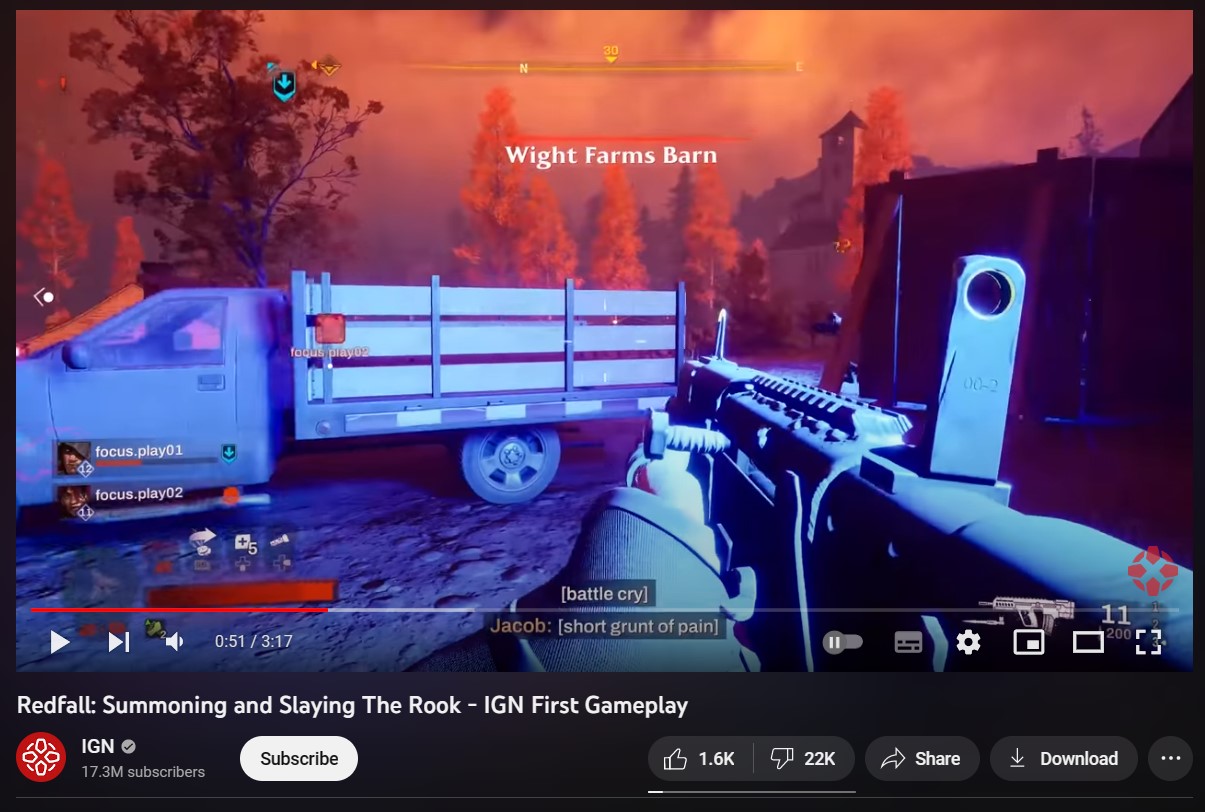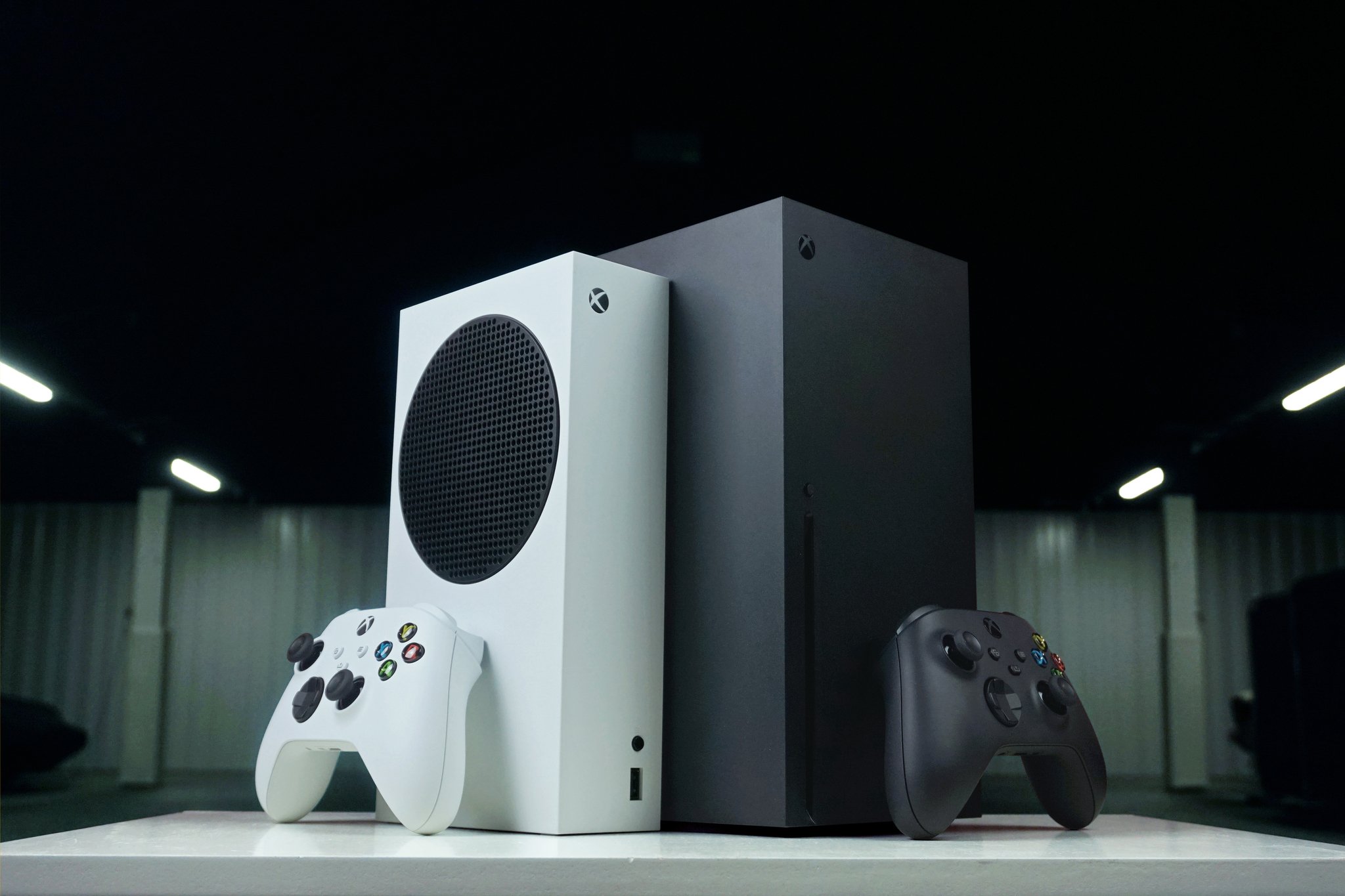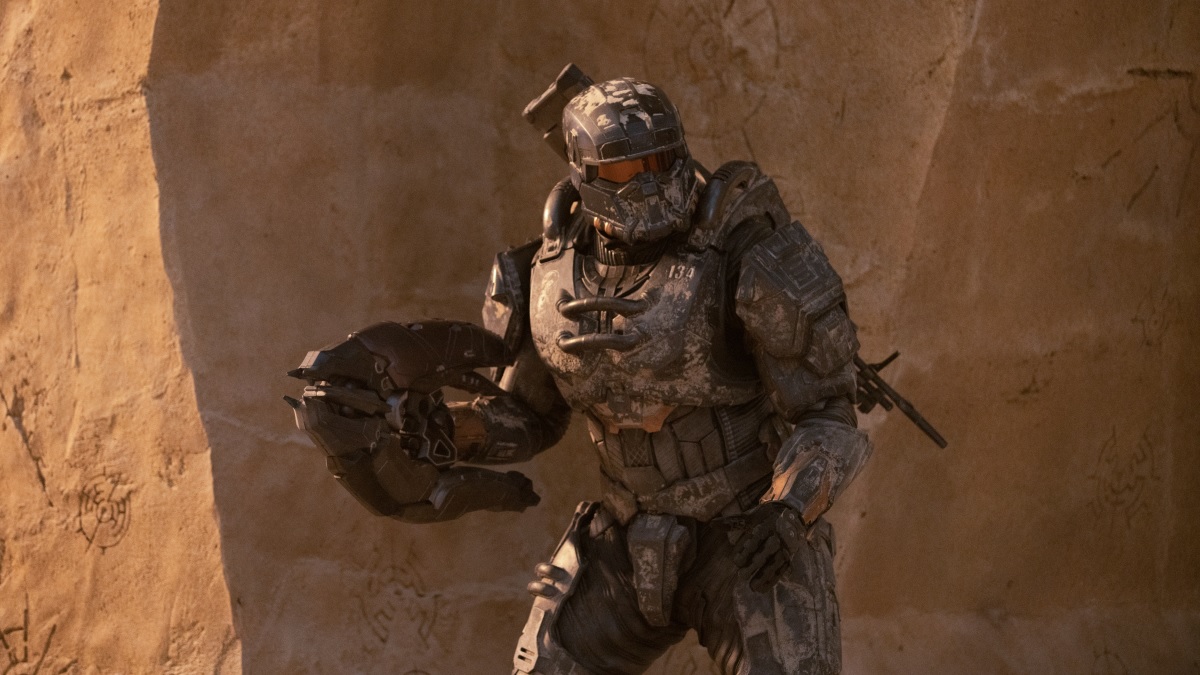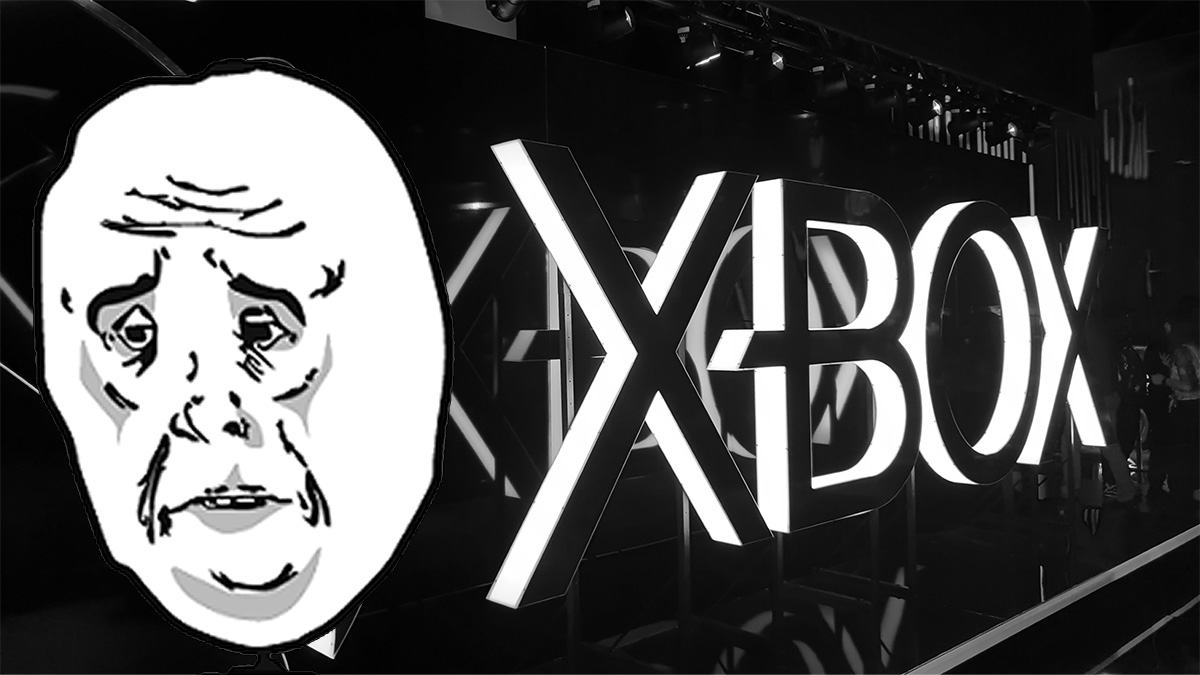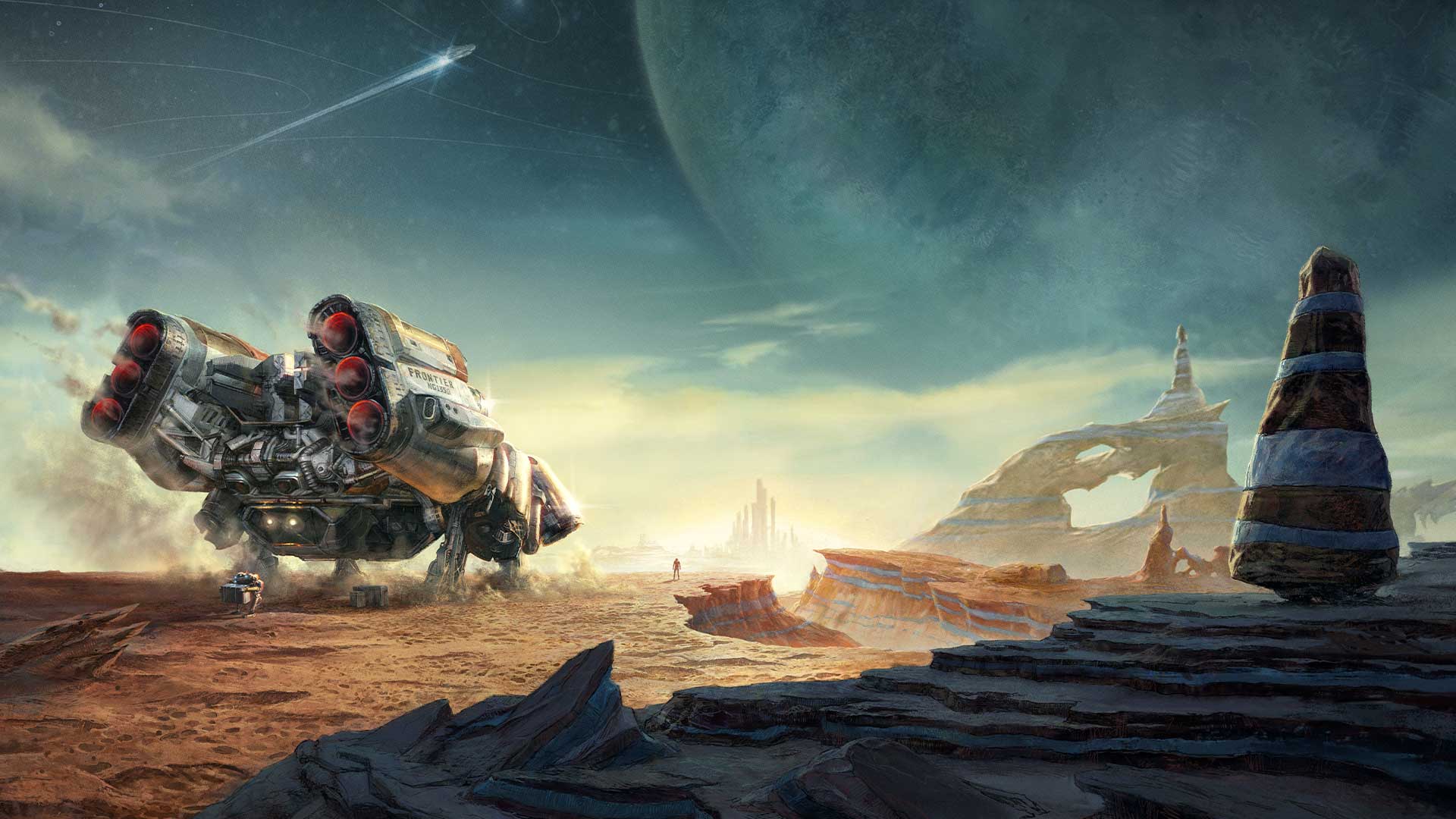On Xbox, caveats, and mismanaged expectations
The Redfall controversy is another example of Xbox seeding snippets of disappointment.
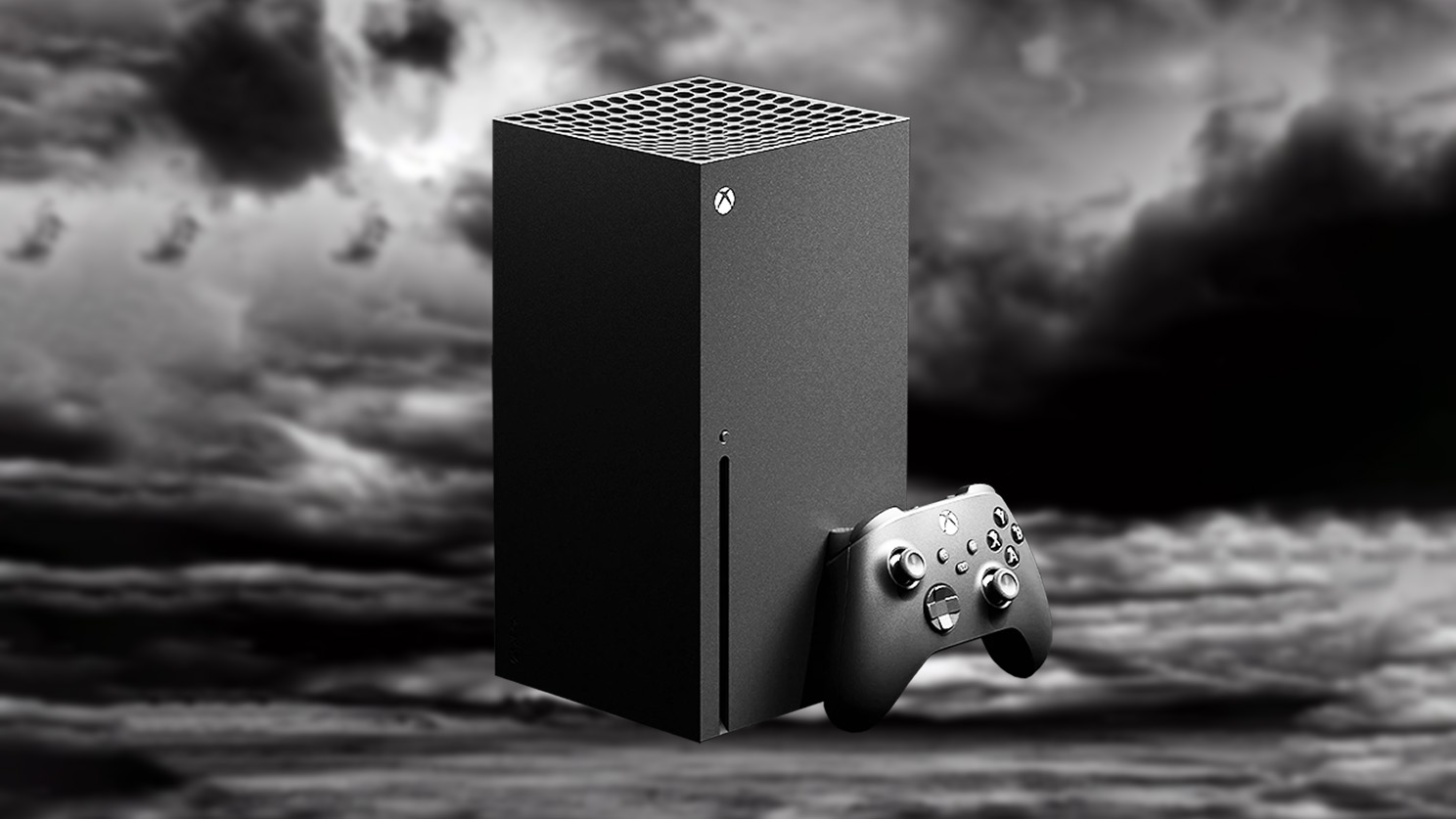
All the latest news, reviews, and guides for Windows and Xbox diehards.
You are now subscribed
Your newsletter sign-up was successful
Today, Microsoft found itself embroiled in another social media outcry over the delivery of its latest Xbox exclusive, Redfall, in development by Arkane Studios.
Microsoft acquired Arkane as part of its deal to acquire ZeniMax Media, which incorporates studios like Machine Games, id Software, and Bethesda Softworks. Microsoft has already some fruits blossoming as a result of this acquisition through the wildly popular Hi-Fi Rush from Tango Gameworks, although the wins seem few and far between. I say 'seem' because it's hard to really put a quantitative flag on exactly where Xbox sentiment is heading right now. We'll talk more about that shortly.
In any case, today, Redfall found itself the unwitting focus of another storm of Xbox criticism. The game's social media account says that Redfall will launch at 30 frames per second on Xbox Series X|S, with a 60 FPS mode coming sometime after launch. In real terms, it shouldn't be that big of a deal, but it became one because it's a type of disappointment Xbox fans are sadly all too familiar with — and increasingly tired of.
It's ultimately not about Redfall
Redfall has become the unfortunate casualty of what is ultimately a straw breaking (or close to breaking) the camel's back, as it were. If Redfall was a multiplatform game from an independent publisher, I doubt it would be seeing the same kind of backlash it is now. Fair or not, though, Redfall and other ZeniMax games are intertwined with the image and messaging of the Xbox platform as a whole, and therein lies over a decade of baggage.
I don't need to go and retread the last ten years of Xbox controversy because we've all discussed it to death at this point. But in summary, the backslide in trust in Xbox stems almost entirely from the Xbox One generation, which started in the least positive way imaginable. Microsoft's haphazard messaging over the Xbox One's always-online nature, coupled with its higher price point and lower performance output than its closest competition, was a recipe for sentiment disaster. Ever since then, it feels like Xbox has wholly been on the back foot. Whether it's ZeniMax's Arkane, Obsidian, or any of the other recently acquired Xbox studios, the messaging and managing of expectations is doubtlessly more complex for these teams than it was previously.
Redfall has had a difficult marketing cycle. I've said in the past that Arkane makes unmarketable games owing to the team's bold penchant for experimentation. Arkane makes two of my favorite games of all time, Dishonored and Prey, whose Deus Ex-like DNA speaks deep to my soul. Many fans of Arkane feel the same way, which is why Redfall has been met with some skepticism from the developer's fanbase, owing to its always-online, loot-driven Destiny-like veneer. However, the discourse has been made all the more toxic by its platform-centricity, namely its Xbox exclusivity.
Arkane said in an interview that a PlayStation version of Redfall had been killed by Microsoft after the acquisition leading to another flurry of focus on the nature of the game, rather than the gameplay itself. IGN also had exclusive preview access to Redfall, which currently endures a 1.6K to 22K dislike ratio on YouTube, largely owing to the player's performance rather than the game. And now, we have an Xbox Series X exclusive that is launching at 30 FPS, despite how hard Microsoft worked to put an emphasis on the $500 console's graphical performance.
All the latest news, reviews, and guides for Windows and Xbox diehards.
As someone who has been dealing with Xbox PR for almost ten years, I can't help but expect that there were some terse email exchanges between ZeniMax and Microsoft as a result of some of these communications. But herein lies the bed Microsoft has made for itself: it expanded its teams incredibly rapidly, some might say too rapidly. The friction in marketing communiqué between ZeniMax and the wider Xbox platform is likely to get smoother over time, but regardless, it isn't exactly on ZeniMax here to prop up the entire Xbox platform. And recently, that's exactly where Xbox fans' hopes have been pinned lately.
It's simply untrue to say Xbox hasn't delivered high-quality games more recently, though. They might not be headline-grabbers like The Last of Us or God of War, but nobody can deny the quality offered by titles like Flight Simulator, Age of Empires IV, Grounded, Sea of Thieves, and so on. The problem often boils down to the fact that the wins feel diffuse and often come with caveats.
Sea of Thieves is incredible now, but I don't think it's unfair to say it was incredibly light on content at launch. Games like Flight Simulator and Forza Horizon don't have those epic stories Xbox fans are clamoring for, and Age of Empires sits within a PC-oriented "niche," despite how good the Xbox controls may be. As such, hopes have fallen to developers like Obsidian, Bethesda, and Arkane to shore up Xbox's offering, which has been middling at best in the past decade. Microsoft delivered high-hopes with slick CGI reveals for games like Halo Infinite, ReCore, and Crackdown 3, all of which failed to deliver in various ways. The biggest wins Xbox has had lately come from more focused, albeit less "grand" games like Grounded, Pentiment, and Hi-Fi Rush, while the wait for big marquee titles like Fable, Starfield, and the next Gears of War becomes ever increasingly excruciating. Given how badly Microsoft has repeatedly burned fans in the past, getting excited about these games and by extension, the platform itself, is getting harder and harder for some.
Are people being unfair?
The disappointments around Redfall, which hasn't even launched yet, are simply part of a wider circus of overblown expectations Microsoft keeps pushing on its users. My favorite, and most egregious example of this, is Minecraft's Super Duper Graphics Pack. Microsoft had the audacity to reveal Minecraft's AWOL 4K revamp for next-gen consoles with a literal musical before canceling the project completely. To this day, Minecraft on Xbox Series X|S lacks shaders enjoyed by the PC version for years, for reasons only Microsoft knows. All of this without diving into the debacle that was Scalebound, Phantom Dust, and other flashy CGI reveals that ultimately panned out to nothing.
Though, other platforms cancel games, scale back projects, and occasionally miss the mark too. Why does Xbox seem to get the majority of the flak, and is it fair?
It's not like Microsoft's chief competitors are strangers to controversy. Nintendo and PlayStation have disappointed their fans, too, over the years. Off the top of my head, Pokemon Sword and Shield notoriously had its big "Dexit" controversy, which saw dozens of popular 'mons omitted from the first Nintendo Switch iteration of the popular franchise. Sony won some negative discourse for its implementations of backward compatibility on PS5 and PSVR2. The Last of Us on PC is among Sony's lowest-rated games of recent memory, owing to its chronic lack of polish. But, I'm kind of scraping the barrel here.
The reality is, Sony and Nintendo just seem to be more capable of delighting their fans more consistently. The Super Mario Bros. movie just became the highest-grossing animated movie opening of all time, beating Frozen 2. The Minecraft movie has been AWOL since its initial reveal in 2014. PlayStation's The Last of Us TV show is one of the highest-rated video game adaptations of all time. The Halo TV show, by comparison, has been mocked for its strangeness and complete divergence from the game series' established lore.
Stacking Xbox up against Nintendo or PlayStation by many metrics paints a bleak picture, but it's not true to suggest that Xbox is incapable of delighting fans. Redfall controversy aside, the Xbox Series X|S consoles are great machines. The Xbox Series S is incredibly affordable, too, lowering the barrier to entry for many. Xbox Game Pass remains the best deal in gaming, offering hundreds of games for a low monthly fee. Xbox Cloud Gaming and its technology are impressive and improving every month. But all of this almost feels like consolation prizes that emerged as a result of Microsoft trying to reshape the industry to accommodate its struggle to deliver like its competitors.
Offering great value is awesome, and powerful tech is exciting, but gaming is always about ... well, games. And we're still waiting for Microsoft to deliver those consistently and without caveats like "60 FPS will come later," or "we're sorry, promised split-screen gameplay is canceled," or "that Minecraft feature we revealed with a big-budget musical trailer is dead," or "this game is coming to every platform except Xbox."
Does any of this even matter?
Xbox is in third place in the so-called console war, with PlayStation and Nintendo seemingly unstoppable. The industry is different now, though, with mobile and cloud likely to play an increasingly bigger role in what constitutes "success." Xbox is well positioned for that future, especially if it lands Activision-Blizzard as is expected, giving it control over some of those pillar culturally-relevant franchises that often elude the Xbox brand.
Without some big-budget meta-analysis of social media sentiment per console, per faux pas, it's hard to get quantitative evidence of how much of an impact Xbox is having on its wider desirability. Most industry sales analytics put Xbox in a distant third place for market share, though, with Microsoft itself painting a dire picture of its market share in its regulatory battles over the Activision-Blizzard deal. The obvious explanation there, is games and the consistent delivery of said games.
Will the discourse over Redfall impact its sales? Do its sales even matter in the Xbox Game Pass world? Will Redfall launching at 30 FPS impact the Xbox platform in any meaningful, negative way? Probably not. We all have our "bubbles," and hardcore Xbox fans will treat news like this differently to the wider gaming community — if the wider gaming community is even aware of it. Sentiment filters down, though. I make an effort to engage people outside of the typical Xbox community, and it's not often I find someone who is excited about Xbox as they are about PlayStation or Nintendo, for whatever reason.
At the end of the day, Xbox fans just want to see the platform they've invested in succeeding on the same level the competition seems to succeed, with expectations set by Microsoft itself being met. There are too many caveats, too many broken promises, and too much misalignment between marketing beats and product realities. As a fan, it just becomes a little tiring.
And sure, it's not like there aren't mountains of great-looking upcoming Xbox games to look forward to, third-party or not. It's not like Xbox consoles are exploding or catching fire. And it's not like Microsoft isn't investing in trying to fix some of this stuff. Microsoft grew its studio footprint and staff headcount very rapidly, then went straight into a pandemic, which killed all travel and sent collaborative working to the uncanny digital realm. A lot of this stuff is likely teething problems as the different teams integrate and learn to work together, or perhaps Microsoft really needs to invest in more humans to oversee some of this stuff.
Whatever the reason, as customers, we don't see that. It's not for lack of empathy. The game industry is quite secretive, and as my buddy Rand says, "nobody cares how the sausage is made." What Xbox and its developers are trying to do is incredibly complicated across a high-tech globe-spanning operation. I know from speaking to people at Xbox over the past decade how passionate they are for the platform and its users. But, we're investing in a product and its associated services in the hope of finding an oasis from the stresses of the day-to-day. And it's not without some jealousy for how frequently other platform holders seem to exceed expectations within that oasis, versus the ratio of falling short.

Jez Corden is the Executive Editor at Windows Central, focusing primarily on all things Xbox and gaming. Jez is known for breaking exclusive news and analysis as relates to the Microsoft ecosystem — while being powered by tea. Follow on X.com/JezCorden and tune in to the XB2 Podcast, all about, you guessed it, Xbox!
